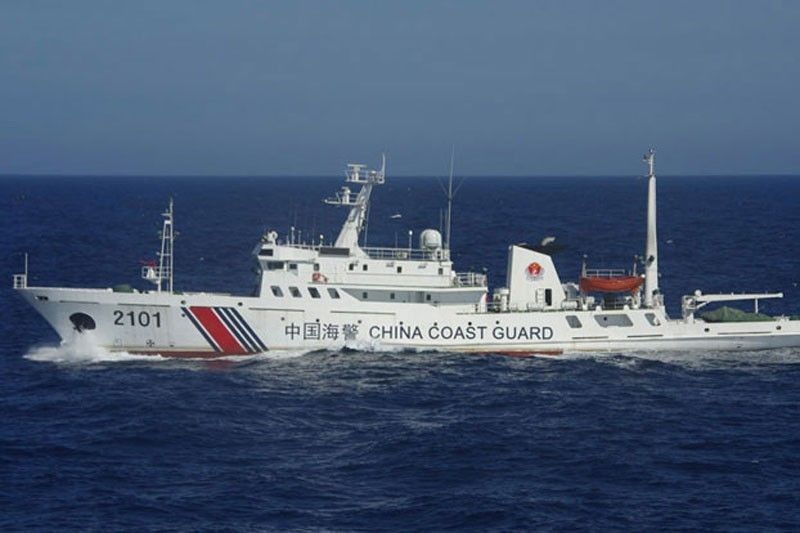China Coast Guard entering foreign waters via artificial islands

MANILA, Philippines — China is now capitalizing on its artificial island military bases in the West Philippine Sea to advance its massive maritime and territorial claims deeper into Indonesian, Malaysian and Brunei waters in the South China Sea, a US-based think tank reported.
In its latest report, the Center for Strategic and International Studies (CSIS) Asia Maritime Transparency Initiative (AMTI) said that Chinese Coast Guard (CCG) ships monitored last month and early this month inside the exclusive economic zones of three Southeast Asian states were either from now heavily fortified Chinese bases at Panganiban (Mischief), Zamora (Subi) and Kagitingan (Fiery Cross) Reefs.
“This activity matches a pattern seen in other recent CCG actions. The availability of China’s artificial island bases in the Spratlys for resupply and replenishment has enabled sustained weeks or even month-long deployments to the farthest reaches of the nine-dash line, something that was much more difficult for Chinese vessels in the past,” AMTI said.
While Malaysia and Brunei opted to remain silent over the steady encroachment of CCG vessels inside their respective exclusive economic zones (EEZs), Indonesia openly challenged Beijing’s massive maritime enforcement which covers almost the entire South China Sea to also include the EEZs of the Philippines and Vietnam.
For several weeks starting late December, CCG vessels, coming from their three key bases in the West Philippine Sea, were monitored to be escorting a flotilla of Chinese boats on a fishing expedition inside the waters of Indonesia’s Natuna Island group.
These fishing vessels are believed to be part of the Chinese maritime militia unit on South China Sea deployment, in support of China’s enforcement of its already invalidated nine-dash-claim of the vast ocean in the region.
AMTI tracked down at least four CCG vessels, even if these ships usually turned off their Automatic Identification Systems (AIS) signals. These vessels were monitored to be conducting patrols inside Malaysian and Brunei waters before sailing inside Indonesia’s EEZ.
These CCG vessels are composed of the Zhaolai patrol ships with bow numbers 5403, 5202, 5302, and the CMS (Chinese Maritime Ship) 2169 that came from Sanya port.
Another CCG ship, a Shucha II-class vessel with bow No. 5302 coming from Panganiban Reef, joined the other CCG ships while inside Malaysia’s EEZ in early December. The CCG 5202 was later monitored to have left the group and going toward Kagitingan Reef, presumably to resupply.
“The Chinese fleet began its withdrawal on Jan. 11 with 5202, 5402, 5302, and 2169 all returning to Hainan by Jan. 16. The CCG 46303, having joined the operation a week earlier, stayed at sea and took over patrol duty at Luconia Shoal off the Malaysia coast,” the AMTI reported.
AMTI added that China’s flotilla presence inside the maritime waters of Indonesia, Malaysia and Brunei will have a lasting effect and has particularly heightened awareness among the Indonesian political and military leaderships of the South China Sea disputes, and the stakes involved for the country.
It added that the recent development highlighted several trends that are part of the new unstable status quo in the hotly disputed South China Sea.
“The CCG operations showed yet again how much China’s Spratly Island bases facilitate larger and more sustained deployments of coast guard and paramilitary force. And while CCG has escorted fishing flotilla around the Spratly Islands on many occasions, doing so in the EEZ of neighboring states far from contested islands is a new level of provocation,” AMTI said.
AMTI also said that this latest development is proof that even claimant countries who downplay the maritime dispute in the region to prioritize positive relations are subject to Chinese coercion and intimidation.
“This is especially true to Malaysia, which has experienced increasing levels of harassments despite its unofficial policy of not criticizing Chinese activities in its EEZ,” AMTI said.
- Latest
- Trending
































